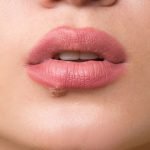Irritable Bowel Syndrome: Successful Treatment with Botanical Medicine and Probiotics
Antibiotics can be life-saving, but overuse has led to resistant microbes and inflammatory bowel
diseases. The integrity of the mucus barrier is affected by antibiotics, allowing penetration by
bacteria, leading to inflammation in the intestine.
Research was done on mice that were given antibiotics twice a day for 3 days. Antibiotics and
classes used:
– ampicillin (aminopenicillin class)
– metronidazole (nitroimidazole class)
– neomycin (aminoglycoside class)
– vancomycin (glycopeptide class)
A clear breakdown in the mucus barrier was seen, along with these findings:
– Microbiota transferred from antibiotic-treated mice to germ-free mice didn’t transfer the
antibiotic’s effect on the mucus barrier
– Researchers can’t explain antibiotics’ effect on host transcription only by antibiotic-
induced gut microbiota changes
– Endoplasmic reticulum stress disturbs mucus in the colon barrier by inhibiting its
secretion
– Inhibiting the secretion of mucus damages the function of the colon barrier and induces
inflammation of the colon
Researchers concluded, “Antibiotics have a deleterious effect on the mucus barrier, in
part by acting directly on host cells. It is important to note that we do not rule out
microbiota-dependent deleterious effects on the mucus barrier but rather that a direct
effect on the host also exists. A recent study has shown that transferring microbiota
from humans with a history of antibiotic use to mice can cause mucus barrier defects
in mice.”
See also:
Irritable Bowel Syndrome: Successful Treatment with Botanical Medicine and Probiotics
Taking Antibiotics Could be Detrimental to Athletes
Scientists Reveal Mechanism that Causes Irritable Bowel Syndrome
Source: Sawaed J, Zelik L, Levin Y, et al. Antibiotics damage the colonic mucus barrier in a microbiota-
independent manner. Sci Adv. 2024;10(37):1-11.









